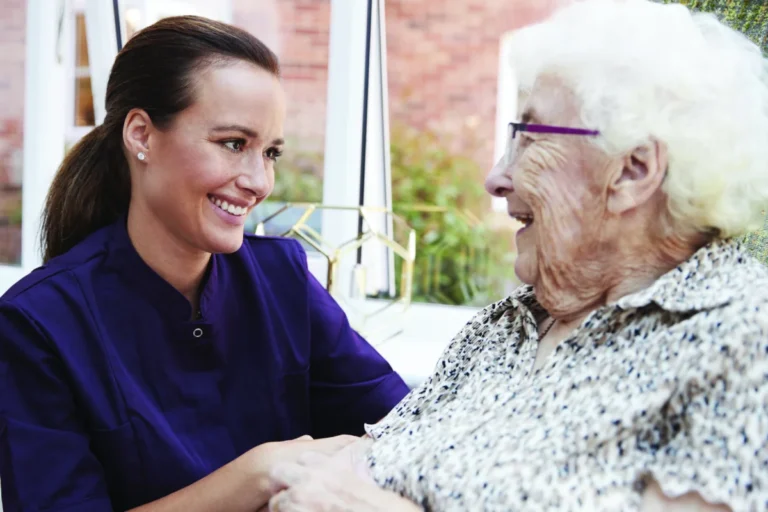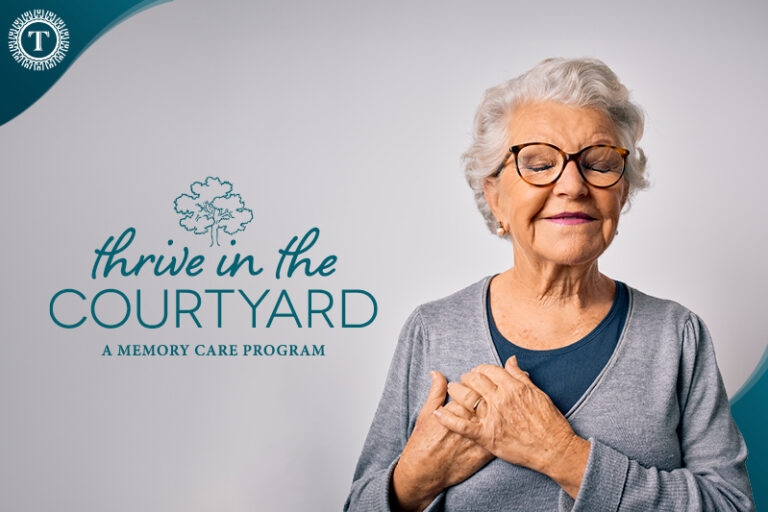According to data gathered by the Alzheimer’s Association, Alzheimer’s accounts for up to 80 percent of dementia cases and is the most common type of dementia among adults in the U.S. The greatest known risk factor for Alzheimer’s disease is increasing age; the majority of Alzheimer’s patients are age 65 or older.
While some changes to memory and daily habits are a normal part of aging, Alzheimer’s and its signs and symptoms are different. Because Alzheimer’s is a progressive disease, early diagnosis is important in managing symptoms of the disease. While there is no cure, therapies, treatments and daily lifestyle changes can support Alzheimer’s patients as they live happy, engaged lives. At Stratford Commons Memory Care Community, residents have access to activity, social, wellness and fitness programs, as well as innovative therapies and communication technologies that allow them to pursue their current interests and continue to develop new hobbies.
In order to provide support to a loved one on an Alzheimer’s journey, or to understand what the future may look pending a diagnosis, it is important to understand what the early signs of Alzheimer’s are and how to take action early.
10 Early Signs of Alzheimer’s Disease
Some early signs of Alzheimer’s are concerning, while others are easier to mask. For seniors who live alone, it is especially important for friends and family to pay attention to any changes in abilities or behaviors. Here are 10 early signs of Alzheimer’s disease to be aware of:
- Memory loss. Examples include forgetting important dates and events or asking the same questions over and over.
- Difficulty in solving problems. Seniors with this symptom may have difficulty concentrating and take much longer to complete daily tasks. They may also have a hard time following a plan or instructions, such as a recipe.
- Challenged by completing familiar tasks. This symptom may result in a senior no longer remembering how to drive to a familiar location or forgetting the rules to a favorite game.
- Confusion with place or time. It is common for Alzheimer’s patients to lose track of seasons, dates and the general passage of time.
- Inability to understand spatial relationships or visual images. Vision problems can be a sign of Alzheimer’s, especially if the senior develops difficulty in judging distance or determining contrast or colors.
- Increasing problems with speaking or writing. Alzheimer’s patients often have difficulty following or joining a conversation. They may struggle with vocabulary and forget the names of familiar objects.
- Losing the ability to retrace steps. A common symptom of Alzheimer’s is when seniors begin to forget where things go and loved ones find things in unusual places.
- Poor judgment. An early sign of Alzheimer’s disease is when a senior begins to use poor judgment, such as making careless decisions with money or losing interest in grooming.
- Pulling back from social activities. Largely due to other symptoms, it is common for Alzheimer’s patients to withdraw from hobbies or social engagements.
- Changes in personality or mood. Some Alzheimer’s patients may experience changes in personality, including becoming easily upset when out of their comfort zone.
Alzheimer’s Symptoms vs Normal Aging
When learning about the early signs of Alzheimer’s, it can be overwhelming and frightening. Many of the signs of Alzheimer’s closely mirror normal aging challenges. It is important to remember a few key differences:
- Normal memory loss can occur. However, in the case of normal aging, seniors may forget things like appointments, but will remember them later.
- Healthy seniors may still require assistance in managing finances or household bills. They may even ask for assistance using new technology or remembering the name of an actor in a favorite movie.
- Seniors can become confused about the day of the week without having Alzheimer’s. However, in this case, the senior will be able to recall the time and place without help.
- Vision changes related to cataracts can be a normal part of aging.
- Misplacing things in itself is not cause for alarm, as long as a senior can retrace his or her steps and recover the item.
- Sometimes seniors prefer not to keep the same pace in their social life as they age. This is normal and should not be cause for concern unless the senior is actively disengaging from family and friends and seems withdrawn.
If you have concerns about a senior loved one living alone, it is important to contact your loved one’s health care provider as soon as possible. For seniors living in senior communities, such as The Village at Mission, the care team has specialized training to spot the early signs of Alzheimer’s and adapt the resident’s individualized care plan to ensure he or she has the support needed.
Planning for a Safe, Secure Future
When dealing with Alzheimer’s disease or any form of dementia, the earlier you know, the better. Early diagnosis allows family members time to learn about the disease, find solutions that work for the family and explore all the care options available. Often, a top priority is finding a Memory Care facility, like The Village at Mission, Stratford Commons and all the Tutera Senior Living & Health Care Memory Care communities, where experienced caregivers help patients remain safe, engaged and active long after diagnosis.
Contact us today by calling 877-988-8372 to learn more about The Village at Mission, Stratford Commons and all our Memory Care locations!







